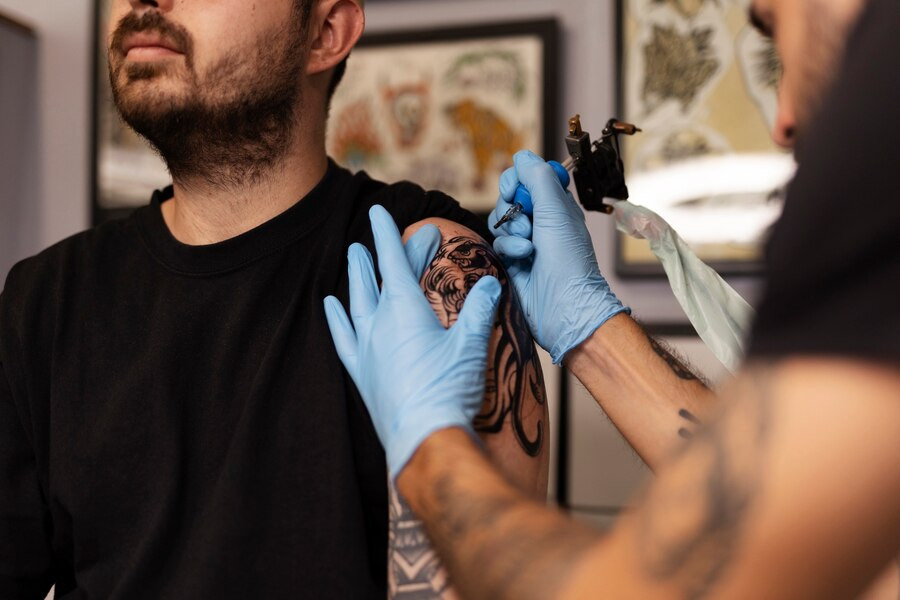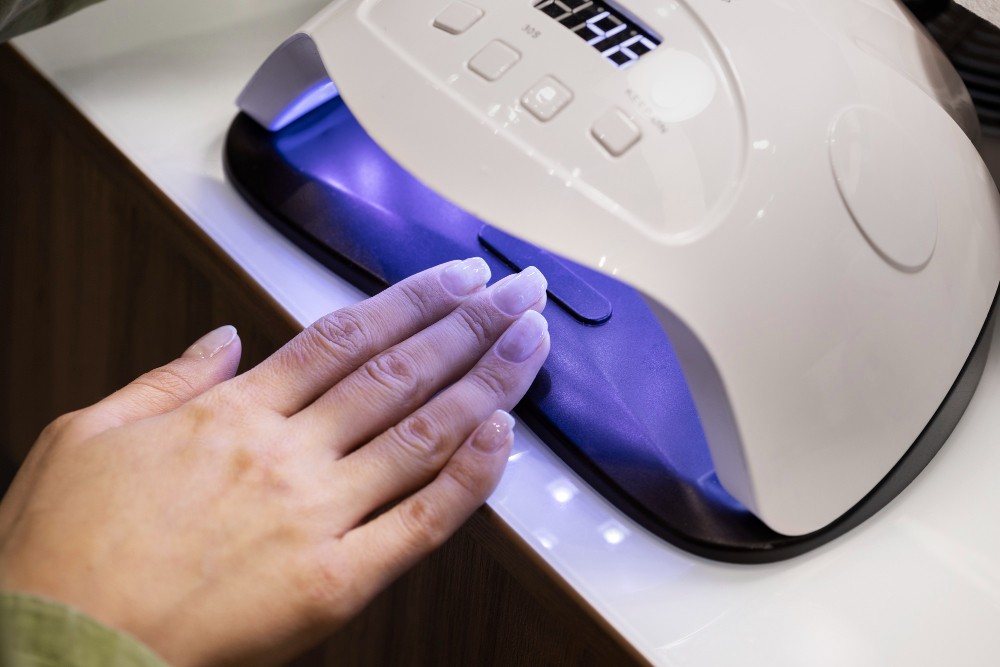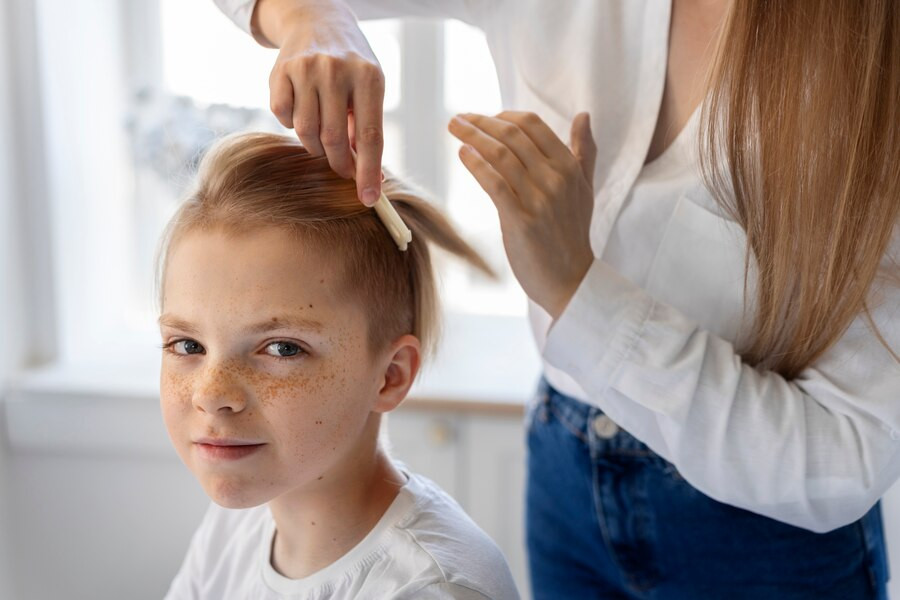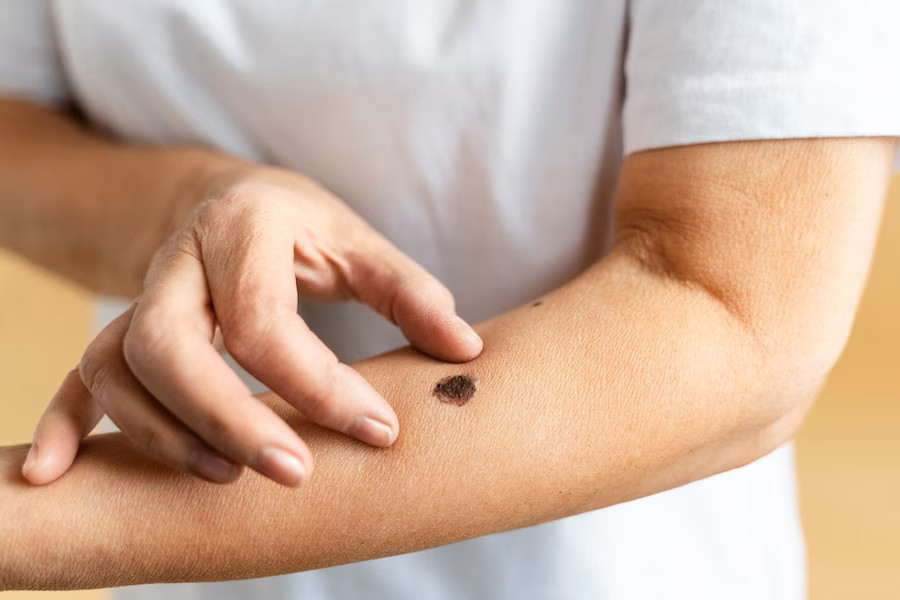Pembuatan tato memiliki banyak risiko kesehatan, termasuk reaksi alergi, infeksi, dan munculnya bekas luka. Meskipun begitu, masih banyak orang memilih untuk mendapatkan tato karena berbagai alasan.
Selain risiko yang disebutkan di atas, pembuatan tato juga berpotensi meningkatkan risiko terjadinya kanker kulit. Benarkah? Simak penjelasannya.
Tato dan Kanker Kulit
Tato sendiri tidak secara langsung menyebabkan kanker kulit. Bukti ilmiah yang menghubungkan tato dengan kanker kulit juga masih terbatas. Namun, ada beberapa hubungan yang menurut pandangan medis berpotensi meningkatkan risiko kanker kulit yaitu:
Bahan kimia dalam tinta tato
Tinta tato terbuat dari berbagai bahan kimia yang dapat memberikan warna dan daya tahan pada gambar tato. Beberapa penelitian menunjukkan bahwa bahan kimia dalam tinta tato dapat memiliki efek toksik pada sel-sel kulit. Misalnya timbal, kromium, dan kadmium yang terkandung di dalam pigmen, alkohol yang terkandung di dalam cairan pengikat, atau agen pengawet, dan pengental untuk menjaga kestabilan tinta.
Paparan sinar matahari
Kulit yang telah ditato lebih rentan terhadap kerusakan akibat paparan sinar matahari. Paparan UV berlebih dapat merusak DNA sel kulit dan meningkatkan risiko kanker kulit seperti melanoma.
Perubahan warna atau struktur kulit
Perubahan dalam warna atau tekstur kulit yang ditato bisa menjadi tanda masalah kulit, termasuk kemungkinan kanker kulit. Walaupun ini jarang terjadi, penting untuk memantau area yang ditato dan mengamati adanya tanda-tanda perubahan yang tidak biasa.
Baca Juga: Pahami Risiko Kesehatan Sebelum Membuat Tato
Tips Mengurangi Risiko Kanker Kulit
Walaupun belum terbukti, risiko tato menyebabkan kanker kulit tetap tak bisa diabaikan sepenuhnya. Untuk itu, disarankan agar lebih berhati-hati apabila Anda masih ingin membuat tato.
Berikut adalah beberapa tips untuk mengurangi risiko kanker kulit dalam pembuatan tato:
- Pastikan memilih studio tato yang memiliki reputasi baik, bersih, dan menggunakan tinta yang aman sesuai peraturan.
- Pastikan seniman tato sudah profesional dan bersertifikasi.
- Hindari menato area kulit yang memiliki banyak tahi lalat atau bintik-bintik, karena akan sulit mengamati adanya perubahan pada area ini, khususnya bila telah ditutup oleh tato.
Baca Juga: Begini Cara Hapus Tato yang Efektif
- Gunakan tabir surya di area yang ditato untuk melindungi kulit dari kerusakan akibat sinar UV. Pilih tabir surya dengan SPF tinggi dan aplikasikan secara teratur.
- Batasi waktu paparan sinar matahari langsung pada area yang ditato, terutama jika tato baru atau kulit sensitif terhadap matahari.
Setelah mendapatkan tato, perhatikan setiap perubahan pada kulit. Apabila ada tanda-tanda perubahan yang mencurigakan, segera konsultasikan dengan dokter. Anda juga bisa memanfaatkan layanan konsultasi kesehatan Ai Care dengan mengunduh melalui App Store atau Play Store.
Mau tahu informasi seputar penyakit lainnya? Cek di sini, ya!
- dr Nadia Opmalina
Jill Seladi-Schulman, Ph.D (2024). Can tattoos cause blood or skin cancer?. Available from: https://www.medicalnewstoday.com/articles/can-tattoos-cause-blood-or-skin-cancer#1
Kristeen Cherney (2021). Can Tattoos Cause Cancer?. Available from: https://www.healthline.com/health/can-tattoos-cause-cancer
Jamie Lebhar, BME, et all (2024). Skin cancers arising within tattoos: A systematic review. Available from: https://www.jaadinternational.org/article/S2666-3287(24)00053-1/fulltext
Mayo Clinic (2022). Skin cancer. Available from: https://www.mayoclinic.org/diseases-conditions/skin-cancer/symptoms-causes/syc-20377605
Tim Newman (2024). Do Tattoos Have Health Risks? Ink May Contain Harmful Bacteria, Study Finds. Available from: https://www.healthline.com/health-news/tattoo-ink-contamination-health-risks
Mayo Clinic (2024). Tattoos: Understand risks and precautions. Available from: https://www.mayoclinic.org/healthy-lifestyle/adult-health/in-depth/tattoos-and-piercings/art-20045067
WebMD (2022). When Tattoos Go Bad. Available from: https://www.webmd.com/skin-problems-and-treatments/ss/slideshow-tattoo-problems












